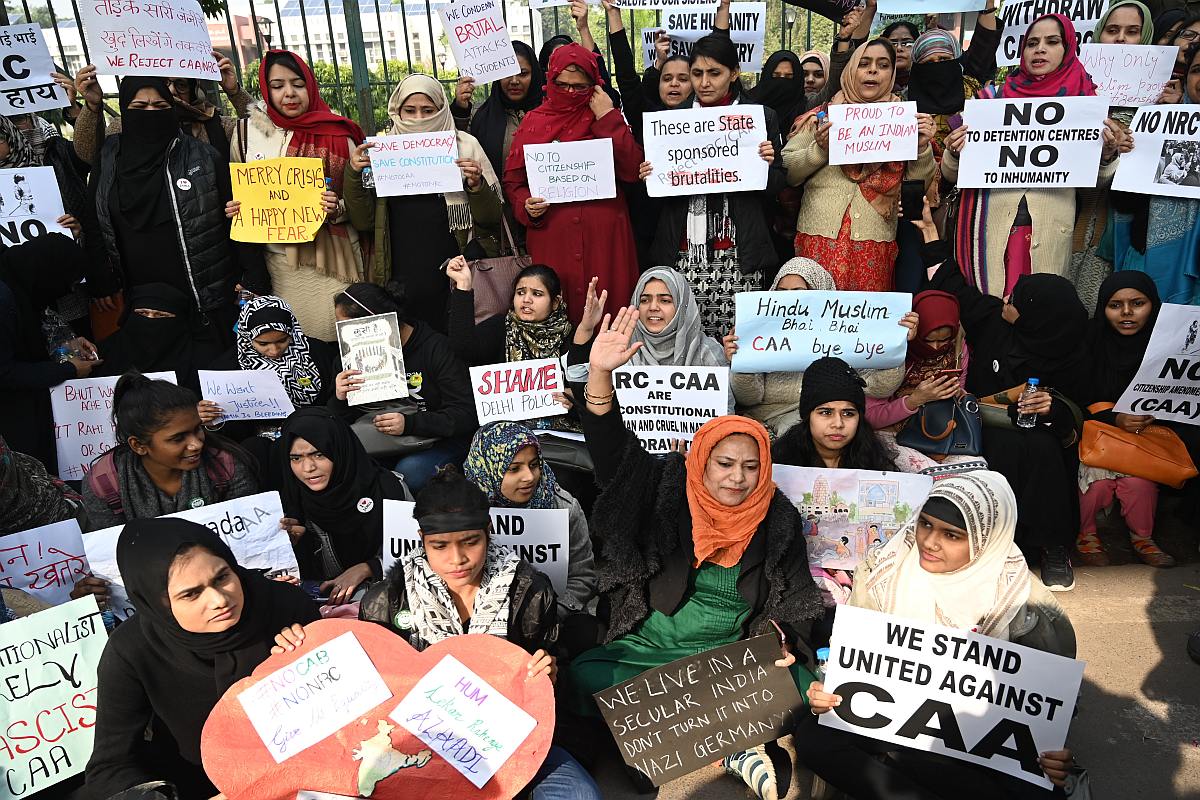Joining the voices against the amended citizenship law, a number of Indian writers, including Arundhati Roy, Devdutt Pattanaik and Ramachandra Guha, claimed the “anti-India” legislation is set to “break the back of our Constitution”.
Some of the writers, including Pattanaik, also criticised the police crackdown against students protesting against the law in Delhi’s Jamia Millia Islamia and Aligarh Muslim University. Amidst protests across the country, writer-activist Arundhati Roy compared the Citizenship Amendment Act (CAA) with the “1935 Nuremberg Laws of the Third Reich” and appealed to people to “stand up”.
Advertisement
“Three years ago we stood in line obediently outside banks as demonetization was imposed on us, a policy that broke the back of our country’s economy. Now the National Register of Citizens coupled with the Citizenship Amendment Bill is set to break the back of our Constitution and cut the ground from under our feet,” the Booker Prize winning author said in a statement issued through Haymarket Books.
“Are we going to stand in line once again, obediently, and comply with this policy that eerily resembles the 1935 Nuremberg Laws of the Third Reich? If we do, India will cease to exist. We are faced with the biggest challenge since Independence. Stand up. Please. Stand up,” she added.
Mythologist Devdutt Pattanaik suggested politicians “who never went to college” should not give advice on student activities.
“Just as celibate men should not give advice on sex, politicians who never went to college should not give advice on student activities, and students who never worked should not give advice on entrepreneurship,” the 49-year-old author, who sent out several tweets against the CAA as well as the police action against students, wrote.
In the form of a conversation between fictional characters Vikram and Vetal, he commented on ministers being clueless about rising prices of onion while they can find “jihadist/maoists in every college campus”.
“Vital: What will the most perplexing thing in Kali Yuga? Vikram: Ministers and their trolls will find jihadis/Maoists in every college campus that challenges them, but be clueless as to why onion prices are so ridiculously high,” he shared.
Chetan Bhagat, who is known for his pro-government outlook, said, “Whatever their historical names, there are no Hindu or Muslim universities in India. They are all Indian universities. And they all must be protected.”
In another tweet he said “you can’t wish 200mn Muslims away” and warned that it would lead to a burning country.
“Those who fantasize about India with a Hindu king and his subservient subjects, remember this. Even if I dignified your bigotry (I don’t), you can’t wish 200mn Muslims away. Try that and India will burn, GDP will crash and your kids will be unsafe and jobless. Stop these fantasies!” the “Two States” author wrote on Twitter.
Bhagat also warned the government against “testing the limits of youth’s patience”.
“Crashing the economy. Making jobs vanish. Shutting down the Internet. Sending police in libraries. The youth may have patience, but don’t test the limits of it,” he said. Best known for his romantic novels, author Ravinder Singh also condemned the Act calling it “anti-India”.
“We are a SECULAR country. Any bill/law that discriminates on the basis of religion and gives preference to one religion over other is Anti-India,” the 37-year-old author said.
“This protest is not by the Muslims, for the Muslims and of the Muslims. It is by the people, for the people and of the people who believe in the idea of India,” Singh wrote in another tweet.
In a series of tweets, historian Ramachandra Guha reiterated Mahatma Gandhi”s vow in 1919, in which he had asked his compatriots, Hindus and Muslims, to behave like children of the same parents.
“A vow Gandhi asked his compatriots to take in 1919 “With God as witness we Hindus & Muslims declare that we shall behave towards one another as children of the same parents, that we shall have no differences, that the sorrows of each will be the sorrows of the other.
“…and that each shall help the other in removing them. We shall respect each other”s religion and religious feelings and shall not stand in the way of our respective religious practices. We shall always refrain from violence to each other in the name of religion,” he tweeted.
“Let’s take this vow afresh and resolve to keep it: in Jamia, in Varanasi, in Aligarh, in Mathura, in Meerut, in Srinagar, in Jammu, in Guwahati, in Murshidabad, and everywhere else in India too,” he added.











